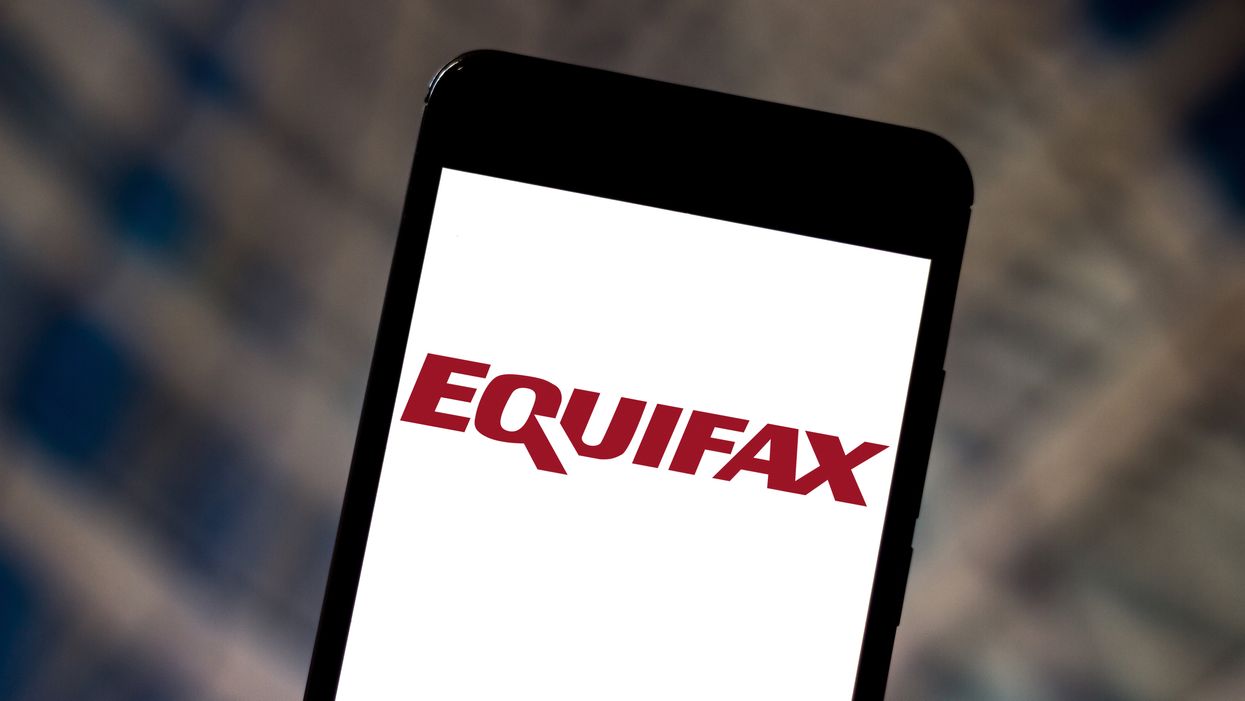
Photo Illustration by Rafael Henrique/SOPA Images/LightRocket via Getty Images

Not a bad deal
If you were impacted by Equifax's vast 2017 security breach, you may be eligible to receive free credit monitoring or monetary compensation up to $20,000.
Equifax, which is one of the three major credit bureaus in the United States, experienced a data breach over a period of three months in 2017. The breach exposed the personal data of at least 143 million Americans. Personal data included names, Social Security numbers, birth dates, driver's license numbers, credit card numbers, and credit dispute documents.
According to Time, Equifax "recently settled to pay up to $700 million in restitution and fines to settle with the Federal Trade Commission (FTC) and the Consumer Financial Protection Bureau." The outlet reported that $425 million will go to those people who were affected by the security breach.
You can visit this link to determine whether your personal information was among those people who experienced similar breaches.
In order to determine your eligibility, you must enter your full name and last six digits of your Social Security number.
You can opt to either receive free credit monitoring for a period of at least four years (and up to 10), or you can file a claim for the minimum amount of $125.
If you are aware that you were exposed in 2017, and you've spent hours, money, and resources working to repair damage that the breach caused, you can file a claim for a maximum of $20,000. If you are planning to file a claim for a sum beyond the standard $125, you must also submit supporting documentation, such as receipts.
Those consumers who have documentation available to support the claim that they should be entitled to a sum over $125 can "bill" the company via claim at $25 per hour for each hour spent remedying the effects of the breach.
Also, Equifax reports that impacted people can also receive at least seven years of free assisted identity restoration services to help remedy the effects of identity fraud.
If you believe that your life was jeopardized beyond a value of $20,000, you can opt out of the class action suit and hire your own attorney to file a separate suit against the company. If you plan to sue on your own, you must not only opt out of the class action lawsuit, but send a letter requesting exclusion from the suit postmarked no later than Nov. 19, 2019.
If consumers do nothing at all, they automatically forfeit the right to sue Equifax in the future. You also relinquish the right to claim the $125 and/or opt into the credit monitoring services.
You can file a claim here. The site also has options if you prefer to file a paper claim and mail it to a physical address.
According to the site, the deadline for all claims for Credit Monitoring Services is Jan. 22. Consumers impacted by the breach — and who filed an approved monetary claim — can opt to receive their settlements via check or prepaid debit card via U.S. mail.
The company does not specify a particular time frame in which consumers can expect to receive their payouts.
In a statement, Equifax's Chief Executive Officer Mark W. Begor said, "This comprehensive settlement is a positive step for U.S. consumers and Equifax as we move forward from the 2017 cybersecurity incident and focus on our transformation investments in technology and security as a leading data, analytics, and technology company."